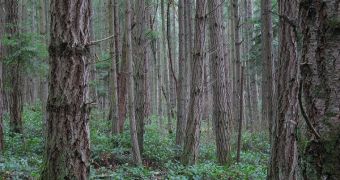The results of a new scientific investigation show that massive extinction events which affect large portions of the planet can have long-lasting effects on ecological cycles. These can be influenced for millions of years at a time, and require special conditions to recover.
One of the most significant effects is caused on the carbon cycle. The element is absolutely critical for life on Earth in more ways than one. It also plays a significant role in determining the overall climate and temperature levels our planet exhibits.
Carbon readily flows through marine ecosystems as well, moving from the bottom to the surface, and from tiny phytoplankton to the massive whales. But the natural processes that drive the chemical element through the environment are stopped when a massive extinction occurs.
Investigators focused their attention on two such events, and namely the Permian-Triassic extinction event (some 251 million years ago) and the Triassic–Jurassic extinction event (some 205 million years ago).
The study was carried out by experts at the Brown University, in Providence, R.I., and the University of Washington in Seattle (UWS). Details of the work appear in the February issue of the esteemed scientific journal Geology, Science News reports.
The main conclusion was that, millions of years after these two events, there was little to no churning of carbon through marine communities. This happened because these populations were too unstable.
Researchers with the group call these periods “chaotic carbon episodes,” and explain that they may have had significant influences on the way future extinction events unfolded tens of millions of years later. The team explains that global events weaken ecosystems and natural cycles unfolding within.
“If you already have a weakened state of ecosystems, these things that would normally be minor variations now become wildly oscillating,” explains Brown paleobiologist Jessica Whiteside.
The new discovery are “a cautionary tale for the species loss that’s going on right now,” the expert adds. The planet is losing biodiversity at an alarming rate, due to human influence.
This takes place either directly, when we kill or poach members of endangered species, or indirectly, through deforestation, global warming and habitat reduction.
When enough species disappear, the carbon cycle may stop yet again, with potentially devastating consequences for the entire planet. This time around, the “carbon break” would last for several million years.

 14 DAY TRIAL //
14 DAY TRIAL //